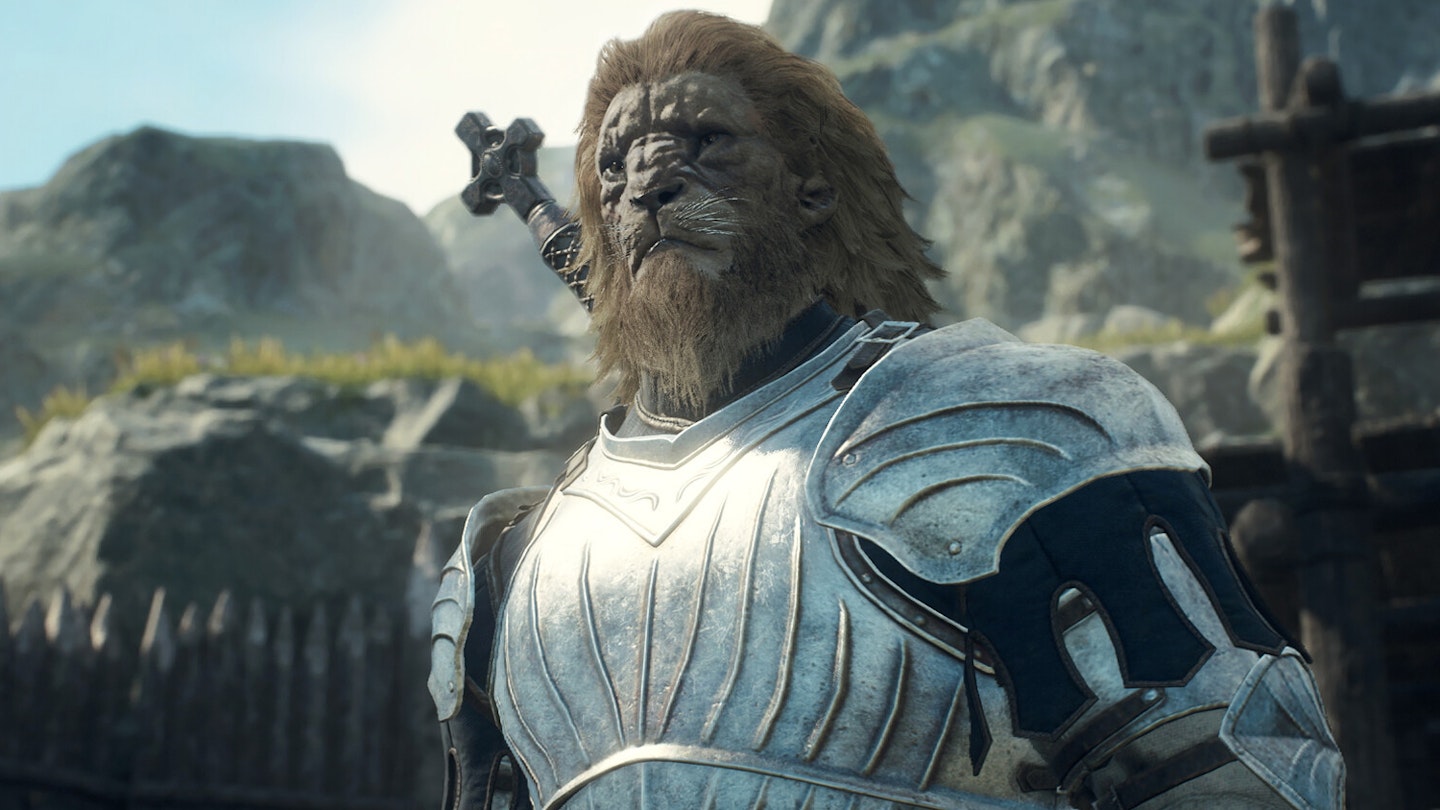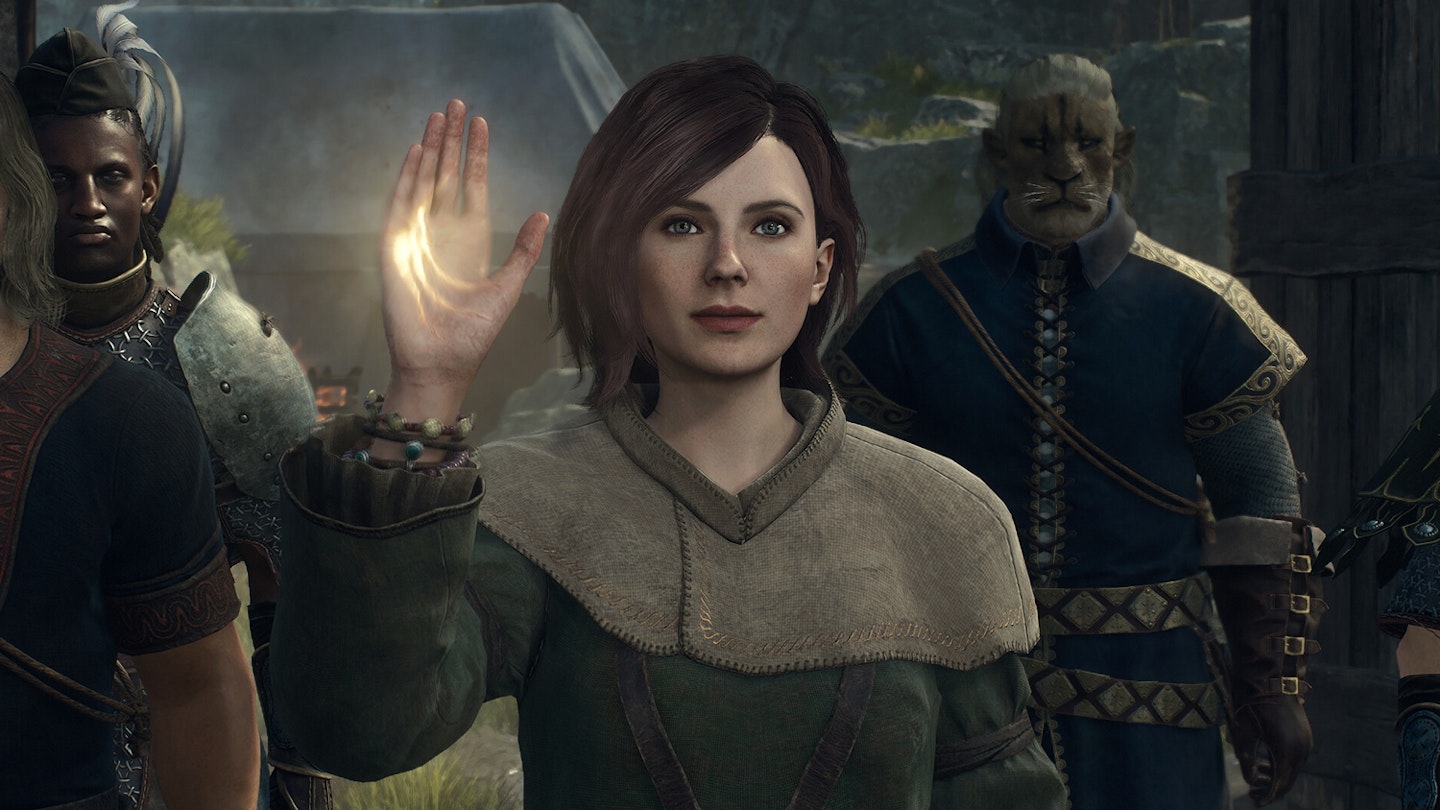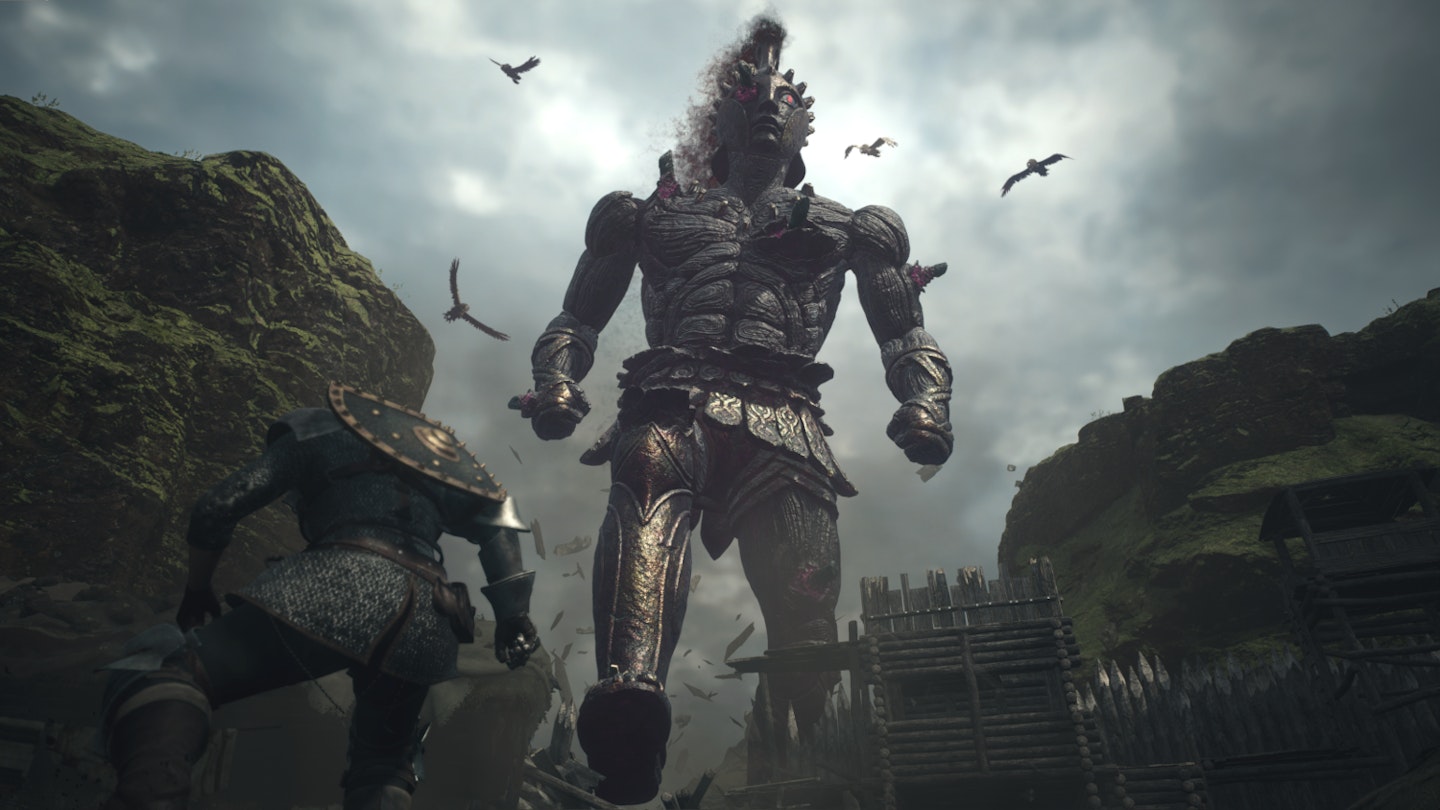Platforms: PS5, Xbox Series X|S, PC
Take a passing glance at Dragon's Dogma II and you might think you've seen it all before. A medieval-themed fantasy adventure, set in a world half-full of feline humanoids, where your destiny is tied to flying lizards? What is this, Skyrim?
Peek closer though, and Dragon's Dogma II shows itself to be unlike almost any other RPG around — barring, of course, its own precursor, released way back in 2012. And, like that first game, you once again play as the Arisen, a figure whose literal heart has been stolen by a dragon, marking them as the destined ruler of the land (if they can depose the pesky interloper already sitting on the throne, that is).

Yet where other RPGs serve up a power fantasy, making you the axis around which the world turns, this instead delights in humbling its players — tormenting them, even — resulting in a world where nothing works quite how you expect it to. It defies the "rules" that gamers are accustomed to – and is often a stronger game as a result.
Take fast-travel, now a staple of open-world RPGs across the board. Here, it's a deliberately janky system, forcing players to either ride tortuously slow oxcarts between cities or use rare Ferrystones to teleport between locations. The reason is director Hideaki Itsuno's belief that travel around a game world should be fun; fast-travel just hides the boring parts. As a result, Dragon's Dogma II is positively crammed with secrets that you'll likely only stumble across if you're exploring. Each time you uncover something new, you'll be glad you took the long way around.
It's like playing Dungeons & Dragons with the strictest dungeon master imaginable.
Or there's the way losing a battle doesn't just mean trying again — you'll be punished for your failure with a penalty to your maximum health until you rest at an inn, making each progressive attempt at a tough fight harder than the last. Best of all — or worst, depending on your perspective — is that Dragon's Dogma II absolutely will not allow you to simply reload a save when something goes wrong. A series of frequent autosaves locks you into every decision made and the outcome of every encounter, with the only alternative being to load manual saves from inns — which can wipe out hours of progress. It's like playing Dungeons & Dragons with the strictest dungeon master imaginable.

Dragon's Dogma II's most interesting feature, though, may be its use of Pawns, a system returning and refined from the original game. You'll have one "primary" Pawn, who's as customisable as your own core Arisen character and who levels up alongside them during the course of your adventures together. You'll also be able to recruit up to two more Pawns to round out a party. These aren't random, though – they're Pawns created by other players, shared online, and they remember what they’ve previously got up to. Stumble into a quest that the pawn has already done, and they'll speak up to offer pointers or guidance, or lead you to hidden treasure that they recall collecting with their former master. These hired Pawns won't grow in level while in your employ, but that does incentivise you to swap out your roster relatively frequently, each new recruit potentially bringing new information to aid your journey.
Both your Arisen and Pawns have character classes, here dubbed Vocations. While you'll have a fairly standard four to choose from to begin with — spellcasting Mage, ranged Archer, melee focused Fighter, and sneaky Thief — you'll later unlock hybrid classes for your Arisen, such as Mystic Spearhand, blending physical and magical assaults. You can swap between Vocations freely too, allowing you to experiment with play styles, which is one of the game's few concessions to player freedom. Pawns are more limited in Vocation options, but your primary Pawn will have some strong upgrade paths, while recruited ones come fixed with the Vocation they had with their original player.

However, Dragon's Dogma II’s combat is unforgiving, whichever class you play. The strengths and weaknesses of each Vocation are immediately apparent, with magic classes easily overpowered during their spell-casting windows, warriors frequently overwhelmed by numbers, or archers left defenceless against up-close foes. Having a good balance of Pawns rounding out your party with a broad spread of Vocations is essential to making progress around the world — fail to plan, and even a group of meagre goblins can take you out. That's all during the day, too — venture too far from the safety of a city at night, or be caught outside past dusk, when you can't see more than a metre in front of you, and you're practically begging to run into the even-more-ferocious enemies that spawn after dark.
Unfortunately, sub-par controls make it all a bit tougher than it needs to be. While you're free to move about during the real-time battles, the lack of a dedicated dodge feature makes avoiding enemy attacks tricky. Jumping or running just doesn't give enough flexibility to work with, especially when you're surrounded by hordes of foes.
Once you find a rhythm within the strictures of battle, though, there are some nice surprises to be found in combat, especially in how tactile it is. Your Arisen is able to grab hold of smaller enemies and lob them around, or clamber up larger monsters to help topple them — behaviour your Pawns will learn from you, making them more capable allies. It's an ability better suited to melee-focused Vocations, but helps make Dragon's Dogma II stand apart from many of its peers.
Yet standing apart is really the game's raison d'être. It's actively subverting expectations at every turn, making for something that may look like every fantasy RPG you've played before, but decidedly isn't. The ways in which Dragon's Dogma II actively trolls its players in places won't be universally loved — for some, it will undoubtedly be off-putting — but there's little else like it around.
